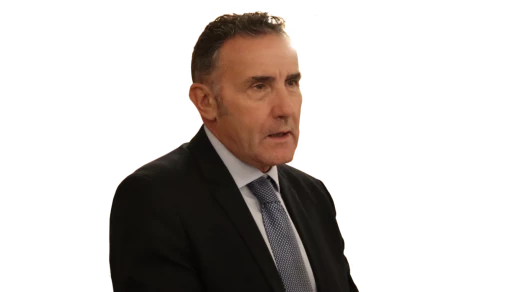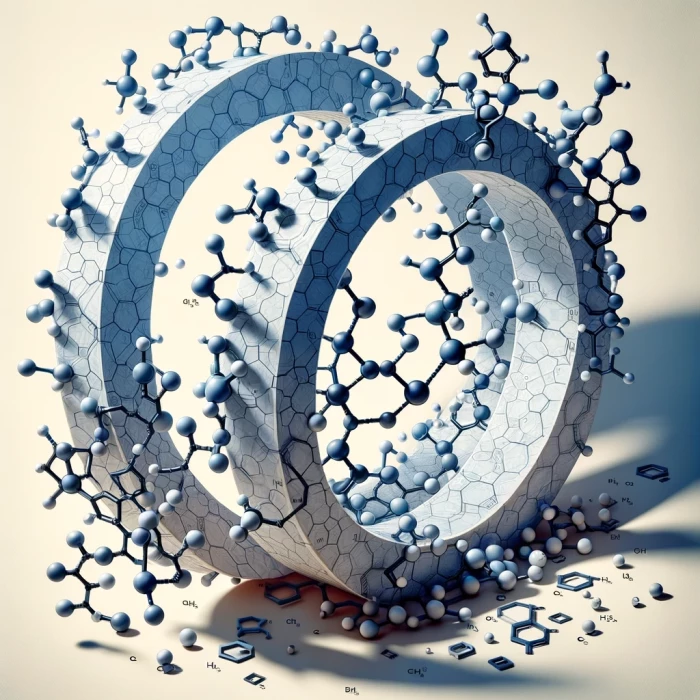
|
Rotterdam
KLINGER The NetherlandsNikkelstraat 2 3067 GR Rotterdam
Elsloo
KLINGER Service Center LimburgBusiness Park Stein 208A 6181 MB Elsloo
Velsen-Noord
KLINGER The NetherlandsRooswijkweg 200 1951 MD Velsen-Noord
Moordrecht
Hadro TechnologySouth Lane 351 2841 MD Moordrecht |

06-02-2024: PTFE necessary for now in current industries
The crucial role of PTFE in gaskets
06-02-2024, Alberto Rocco's view on the ongoing PFAS debate
Amid the ongoing PFAS discussions, Alberto Rocca, the recently appointed Business Development Director at KLINGER Group, sheds light on the indispensable role of PTFE (polytetrafluoroethylene), especially as a gasket material. Alberto has extensive experience in the sealing industry and gets fully involved in the discussions surrounding the ongoing PFAS (per- and polyfluoroalkyl substances) debate. He highlights the crucial role of PTFE in various industries and the challenges posed by potential regulations.

"The focus on PFAS has brought unprecedented attention to PTFE, a sealing industry commodity that has been on the market for 60-70 years."
- Alberto Rocca, New Business Development Director at KLINGER Holding -
ESA's proactive approach
As a member and past president of the European Sealing Association (ESA), Alberto is happy to share insights about a market study on the perception of PTFE. This study was conducted in collaboration with Ricardo, an energy transition consulting firm. "Only 20% of current PTFE gaskets can be replaced in the next 12 years; PTFE remains fundamental in the seals market." emphasizes Alberto, illustrating the challenges in finding alternatives to this material. "Currently, there is no suitable alternative available. The unique properties of PTFE are irreplaceable, especially in situations where temperatures remain below 300°C," he explains. This presents significant challenges for industries that depend on PTFE.

Exceptional longevity of PTFE
To date, PTFE has demonstrated unmatched durability, especially in demanding environments where chemical resistance and temperature stability are paramount. This material, known for its resilience, retains its properties and effectiveness for extended periods, often exceeding a decade, without significant degradation. This aspect is especially vital in applications such as hydrogen electrolyzers, where PTFE is preferred due to its ability to ensure operational integrity over long periods of time.
The impact on different industries
With a market size for PTFE gaskets of about $1.4 billion in 2021, the elimination of PTFE would have profound effects on several industries, Alberto warns.
"Automotive, oil & gas, and especially the medical field, where alternatives are nonexistent, would face major disruptions." Despite being optimistic about innovations, Alberto also remains realistic about the challenges.
"Suitable alternatives are being researched, but PTFE has unique advantages, particularly in terms of chemical resistance, making it incredibly difficult to replace," he states.
Although the "bad" PFAS have already been phased out by companies such as KLINGER Group, the reality remains that it is a complex task with few viable alternatives currently available.
Global perspectives on PFAS regulation
The approach to PFAS regulation varies significantly across the US, China, and Europe, painting a diverse global regulatory landscape. Alberto notes, "In Europe, the proposed focus is on a broad ban, regardless of how fluoropolymers such as PTFE are produced, leading to stringent regulations." This contrasts sharply with the US, where the emphasis is on reporting and monitoring the use of PFAS, rather than outright bans. The Toxic Substances Control Act in the US, for instance, mandates reporting but does not necessarily restrict the use of all PFAS substances. In Asia Pacific, including China, the conversation around PFAS is less pronounced, with no immediate plans for similar regulations.
This regional disparity poses unique challenges for international companies, as Alberto points out, "Europe's stringent stance could lead to competitive disadvantages, as companies in the US and Asia Pacific aren't subject to the same restrictions." This difference in regulatory approaches highlights the need for nuanced strategies to navigate the complex global landscape of PFAS and PTFE usage.
ESA's next steps
ESA is now presenting their findings to the European Chemical Agency (ECHA). The members of ESA are working with local governments to raise awareness about the industry's challenges. As for the timeline, Alberto indicates that a decision from the ECHA is expected around the end of 2024, a crucial juncture that will significantly influence the industry's direction. This period of uncertainty underscores the importance of ESA's role in representing industry concerns and seeking solutions that are both feasible and sustainable. He suggests, “We might see rules on how PTFE products are used and disposed of, rather than a complete ban".
Frequently asked questions (FAQ)
More news on this topic
For more information about our gaskets, please contact:



